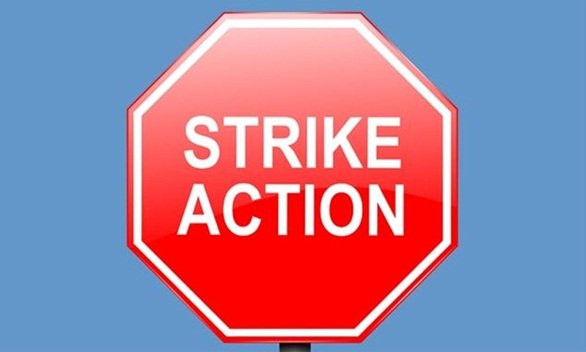 MORE than 160 members of the Psychiatric Nurses Association in Donegal are set to join their colleagues nationwide in industrial action in the mental health services on June 29, says Rory Kavanagh, Secretary of the PNA in Letterkenny.
MORE than 160 members of the Psychiatric Nurses Association in Donegal are set to join their colleagues nationwide in industrial action in the mental health services on June 29, says Rory Kavanagh, Secretary of the PNA in Letterkenny.
PNA members nationally voted 87% in favour of industrial action up to and including strike action. The work to rule will begin with non co-operation with clerical duties and build from there.
The union says up to 1,000 new nurses are needed to fill 600 current vacancies and to replace retiring staff across the mental health services.
The PNA has a number of other issues to be resolved including the status of temporary nurses, graduate courses and training. However it is in the general area of staffing and the restoration of salary scales that were reduced in the austerity packages.
An issue of concern is that for new staff entering the service since 2011, there is a 10% reduction in pay and Mr. Kavanagh says this is no longer acceptable.
While there has been an exchange of positions with the HSE in the past week, they have not responded to the nurses demands so far.
The industrial threat comes after revelations the HSE ‘Vision for Change’ framework document launched ten years ago as a blueprint for improving the service has only seen 30% of the paper adopted.
The PNA represents around 5,000 psychiatric nurses and students around Ireland. PNA representatives have also met with Health Minister Simon Harris and set out clear proposals to address both the immediate staffing shortages throughout the services and to deal with the looming demand for newly qualified psychiatric nurses.
PNA General Secretary Designate, Peter Hughes, said the level of support from psychiatric nurses for industrial action reflected the utter frustration at the growing understaffing in the mental health services at both acute and community levels, and the inability of the HSE to bring forward a realistic plan to address the crisis in the short and long term.
“Nurses are not prepared to stand by and watch the demand for acute and community mental health services growing while knowing that this demand cannot be met with the current levels of understaffing with up to 600 nursing vacancies currently and a further 400 to arise from forecasted retirement,” he said.
Rory Kavanagh said the action is due to the serious impact as a consequence of nursing shortages in the service which have been ongoing for the past nine years.
He said the HSE’s “Vision for Change” framework launched ten years ago needed a 20% increase in nursing levels.
“Now a decade later and as a result of the moratorium in the public service that nursing levels are at least 20% lower and that is a huge problem.
The reality is that the investment in the mental health service has fallen to around 6%: about half of what it used to be and that has got to be addressed urgently,” says Mr. Kavanagh.
The union’s annual conference in Cavan was told that the staffing problem is horrendous and endemic.
PNA Secretary General Des Kavanagh said that having regard to existing vacancies and forecasted retirements, 1,000 new psychiatric nurses are needed, just to stand still.
He told the conference that currently in the Health Service Executive, each occasion of overtime or agency use has to be separately sanctioned.
Mr. Kavanagh said that the shortage is a crisis and was easily foreseeable.
The conference has proposed that training numbers in psychiatric nursing be restored to at least the previous minimum of 350 a year.
Des Kavanagh told the annual conference that the Association could not trust the HSE to guarantee a proper nursing workforce was in place. Nurses had no faith that the strategies being pursued by the HSE to recruit and train nurses would meet the “chronic shortages” faced in the coming years, he said.
‘The shortage of nurses is at crisis proportions and is causing horrendous problems across mental health services. These shortages were easily foreseeable by a Government which was so focussed on cutting numbers of public servants that they acted with complete indifference to the forecasted needs of the sick and disabled,” he said.
The PNA has also called for the system to be changed this year, to allow registered general nurses to convert to psychiatry, under a postgraduate training course.
The HSE has said that it is acutely aware of the staff shortages but it is a global issue, not just confined to Ireland.
Tags:







